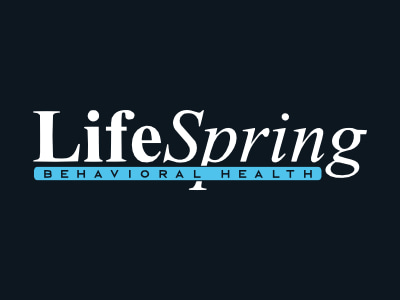- Categories :
- More
So, You’re Thinking About Therapy: A Real-World Guide to Finding the Right Person to Talk To (Who Isn’t Your Barista)

Let’s be honest: deciding you want to find a therapist is kind of a big deal. Whether you’ve hit an emotional wall, keep picking fights with your spouse about who actually does the dishes, or are just tired of crying in the car listening to sad Taylor Swift songs, there’s something quietly powerful about saying:
“You know what? I think I need help with this.”
But then... the internet.
And suddenly you're hit with what feels like an exam in acronyms—LPC, LMFT, LCSW, LCDC, MD, PsyD—and you’re sitting there like, “I just wanted someone to help me stop overthinking every conversation I’ve ever had. Why is this so complicated?”
Don’t panic. You don’t need to decode all this alone. Let’s break it down, so you can find the right person to walk with you through the hard stuff—because the truth is, you don’t have to go it alone. And: you deserve more than inspirational quotes from Instagram life coaches (we’ll come back to that).
First Things First: What Do You Actually Need?
Start with a few honest questions:
• Do I want to talk about my feelings?
• Do I think I need medication?
• Do I need testing to figure out what’s going on?
• Am I dealing with relationships, addiction, burnout, grief, or just life?
• Do I want someone who respects my faith or worldview?
Your answers to these will help you figure out what kind of support you're looking for. Let's dive into the different roles in the mental health world, because not all “helpers” are created equal.
If You Need Medication: Say Hello to the MD (or DO)
If your brain chemistry feels off and you think medication might help (anxiety, depression, ADHD, etc.), you’ll want to see a psychiatrist. These are medical doctors (MDs or DOs) who specialize in mental health. They’re highly trained to prescribe and manage medications that can genuinely change your day-to-day functioning.
BUT—and this is important—psychiatrists typically don’t do therapy. After your initial evaluation (about an hour to 90 minutes) you’ll get a 15–30-minute check-in every few months, some symptom questions, and maybe a prescription adjustment. You will not be unpacking your middle school trauma with them. They’re more science lab than safe space, and that’s okay.
That’s their lane.
If You Want Testing: Enter the Psychologist (PhD or PsyD)
Wondering if you have ADHD? Need an evaluation for learning challenges, memory issues, or diagnostic clarity? You’re looking for a psychologist.
Psychologists hold a PhD or PsyD and are the go-to experts for psychological assessments. Some of them offer therapy, but many focus exclusively on testing and diagnostics. They're like the detectives of the mental health world—gathering data, analyzing patterns, and giving you answers with the credibility of science (and lots of graphs). They are typically not who you go to when you want to cry about your mom’s passive aggressive text messages. For that, keep reading.
If You Want to Talk to Someone: You’re Looking for a Therapist
This is the one you probably meant when you said, “I need therapy.” Therapists are trained mental health professionals who meet with you regularly (usually weekly or biweekly) to help you work through whatever you’re carrying—grief, trauma, anxiety, relationships, burnout, parenting, identity, faith, you name it.
Now listen carefully:
A therapist is not your life coach.
I’ll say it again for the folks in the back.
NOT. YOUR. LIFE. COACH.
A life coach might give you a pep talk and a list of affirmations on a Pinterest-worthy notepad. A therapist has spent years in clinical training, crying through grad school, being supervised, taking licensing exams, and sitting with people in their deepest pain. Therapists don’t just cheer you on—they help you heal.
Coaches are great at setting goals. Therapists are trained to address the why behind what’s keeping you stuck. Both have their place, but they are not interchangeable—no matter how many times someone on Instagram uses the phrase “holding space.”
What Kind of Therapist Should I See? Decoding the Alphabet Soup
Therapists aren’t all one-size-fits-all. Depending on the letters behind their name, they bring different training, perspectives, and strengths to the table. It's kind of like picking a coffee order: all caffeine, just brewed differently. Here's a breakdown of the main types of licensed therapists you’ll run into—and how to figure out who fits your vibe.
Licensed Professional Counselor (LPC)
An LPC has a Master’s degree in Counseling or a related mental health field, plus years of supervised clinical work and a licensing exam (that haunts their dreams). Think of them as the Swiss Army knife of therapy. LPCs are trained to assess, diagnose, and treat a wide range of mental health concerns: anxiety, depression, trauma, self-worth, relationship issues, career stress—you name it.
They often use structured, evidence-based approaches like CBT (Cognitive Behavioral Therapy) or DBT (Dialectical Behavior Therapy), but many LPCs also blend in creative or experiential tools depending on their personality and training. Some do EMDR, some incorporate mindfulness, some get artsy. You’ll find LPCs in private practice, schools, clinics, and pretty much anywhere therapy is happening.
They’re especially great for individual therapy but often work with couples and families too. If you’re new to therapy and want someone to help you understand your thoughts, behaviors, and emotional patterns—and then give you actual tools to work through them—an LPC is a solid choice.
Licensed Marriage and Family Therapist (LMFT)
LMFTs are specifically trained to see people through the lens of relationships and systems. That means they’re not just interested in what’s going on within you, but also what’s happening around you—your marriage, your family, your communication patterns, and the generational stuff that gets passed down like your grandma’s lasagna recipe (but with more emotional baggage).
They’re ideal for couples therapy, family dynamics, premarital counseling, and anything where relationships are part of the issue. If you and your partner are stuck in the same argument loop or you’re trying to heal from some unresolved family chaos, an LMFT brings the systemic tools to sort it out.
Bonus: many LMFTs are trained in Gottman Method Couples Therapy, one of the most respected approaches out there. Gottman-trained therapists don’t just nod and ask, “How does that make you feel?”—they roll up their sleeves and teach you how to fight fair, increase emotional intimacy, and listen to each other without turning into flaming dragons. If you’re a couple who wants research-based tools and fewer passive-aggressive silences, look for someone with Gottman training.
LMFTs can also do individual therapy—especially if your personal stuff is tangled up inrelational patterns (hint: it usually is).
Licensed Clinical Social Worker (LCSW)
LCSWs are mental health therapists with a Master’s in Social Work and advanced clinical training. Their superpower is seeing the whole person in context. Where you’ve been. What systems you’ve had to navigate. How trauma or inequity has shaped your story. If therapy were a movie, LCSWs would be the directors, zooming out to show the bigger picture while still catching every emotional close-up.
They’re often described as warm, empathetic, and deeply practical. They can absolutely help with anxiety, depression, grief, and trauma—but they’re also great at helping you make sense of your environment: toxic jobs, family pressure, systemic barriers, chronic illness, you name it.
You’ll find LCSWs in private practice, hospitals, schools, nonprofits, and community agencies. Many LCSWs blend clinical therapy with advocacy, case management, or resource coordination—so they’re ideal if you need support inside and outside the therapy room. If you want someone who sees you holistically and can help you cope and connect to real-life resources, an LCSW might be your dream fit.
Licensed Chemical Dependency Counselor (LCDC)
LCDC stands for exactly what it sounds like: these counselors specialize in substance use and addiction recovery. Their training is focused on understanding addiction, relapse prevention, harm reduction, and the emotional and psychological factors that fuel unhealthy coping behaviors.
If you’re working through your relationship with alcohol, drugs, or compulsive behaviors—or you’re supporting someone who is—an LCDC is highly trained to walk that road with you. They can help you identify triggers, build coping strategies, and heal without shame. Many work in rehab centers or outpatient programs, but you’ll also find them in private practice.
Some therapists are dual-licensed, meaning they’re an LPC or LCSW and an LCDC. That combo can be especially powerful if you’re navigating both addiction and underlying mental health challenges like trauma or anxiety.
Okay, Great. But How Do I Actually Find One?
This is where most people freeze. But don’t worry—I’m here with a plan that’s better than aimlessly scrolling through 97 smiling headshots on Psychology Today wondering who “looks the nicest.”
1. Use Online Directories (the Internet Can Be Helpful)
Start with:
• PsychologyToday.com — easy to filter by specialty, insurance, faith, and approach •
TherapyDen.com — inclusive, updated, and intuitive
• Open Path Collective — affordable therapy for those paying out of pocket •
Faithful Counseling — if you want a Christian lens
• Inclusive Therapists — if identity, culture, or accessibility matters deeply
2. Ask People You Trust
You’d be surprised how many people have been to therapy. Ask your doctor, pastor, friends, or
coworkers if they know someone good. Personal recommendations often lead to the best fit.
3. Know How You’re Going to Pay (and Why Insurance Isn’t Always
the Hero)
Here’s the truth: not all great therapists take insurance, and not all therapists who take insurance are a great fit. Sometimes your insurance directory leads you to someone with a three-star review and a dusty waiting room who doesn’t even remember your name by the third session. Yikes.
A lot of experienced, in-demand therapists are private pay (aka you pay out of pocket), which sounds scary until you realize many offer sliding scale fees or package deals to make it more accessible. Plus, cash pay often gives you:
• More privacy (no diagnosis on file with your insurance)
• More flexibility in scheduling
• The freedom to pick someone you actually vibe with
On the flip side, using your insurance can save you serious money, especially for long-term therapy. But here's the pro move: don’t just go off your insurance company’s list. Take the names they give you and Google them. Read their websites. Check their vibe. See if they have a specialty that fits your story.
Bottom line: whether you're using insurance, cash, or a combo of both, do your homework. You're not buying a pair of jeans. You're investing in your mental and emotional health. Pick someone who fits you—not just your deductible.
4. Think Local
• Ask your church if they have a referral list.
• Call your child’s school counselor for family recommendations.
• Look up private practices in your area (many now have gorgeous websites and online
booking!).
5. Schedule a Consultation
Most therapists offer a free 10–15-minute phone call or virtual consult to see if you’re a good fit.
This is your time to ask things like:
• “What kind of clients do you typically work with?”
• “Do you incorporate faith or spirituality in sessions?”
• “What’s your approach to therapy?”
• “Do you accept insurance or offer a sliding scale?”
Trust your gut. If you feel comfortable and seen, that’s a great sign.
Final Thoughts: Therapy Isn’t Just for ‘Broken’ People. It’s for Real People.
Therapy it not a quick fix—it’s soul maintenance
Here’s the truth they don’t always tell you: therapy isn’t supposed to feel amazing right away. It’s not a spa day. It’s more like cleaning out your garage after a decade of throwing stuff in there and slamming the door shut. At first, it’s just cobwebs and chaos. You dig up stuff you forgot existed—and some of it kind of smells.
But that doesn’t mean you’re doing it wrong. It means you’re doing it right.
Therapy is courageous work. It takes showing up when you’d rather scroll, speaking the hard truths out loud, and staying in the room when everything in you wants to bolt. It’s slow. Sometimes boring. Sometimes raw. Sometimes weirdly funny. But ultimately, it’s the kind of work that reshapes your life from the inside out.
So if you don’t walk out of your first session on an emotional high, that’s not failure—it’s the beginning. Keep going. Keep showing up. And trust that over time, the hard parts start to turn into healing. Not magic, not overnight, but real, deep change.
Also—if your therapist ever tries to sell you essential oils or asks you to "manifest your childhood trauma away," that’s your cue to run. You're not looking for a guru. You're looking for someone licensed, ethical, grounded, and equipped to help you carry the hard stuff—not someone to gaslight you into pretending it's not heavy.
You deserve real support. Not fluff. Not “good vibes only.” Just a safe place to do the messy, sacred work of becoming who you’re meant to be.
Kathryn Wainscott, MCMHC, LPC
LifeSpring Behavioral Health
281.528.1523
lifespringbehavioral.com















